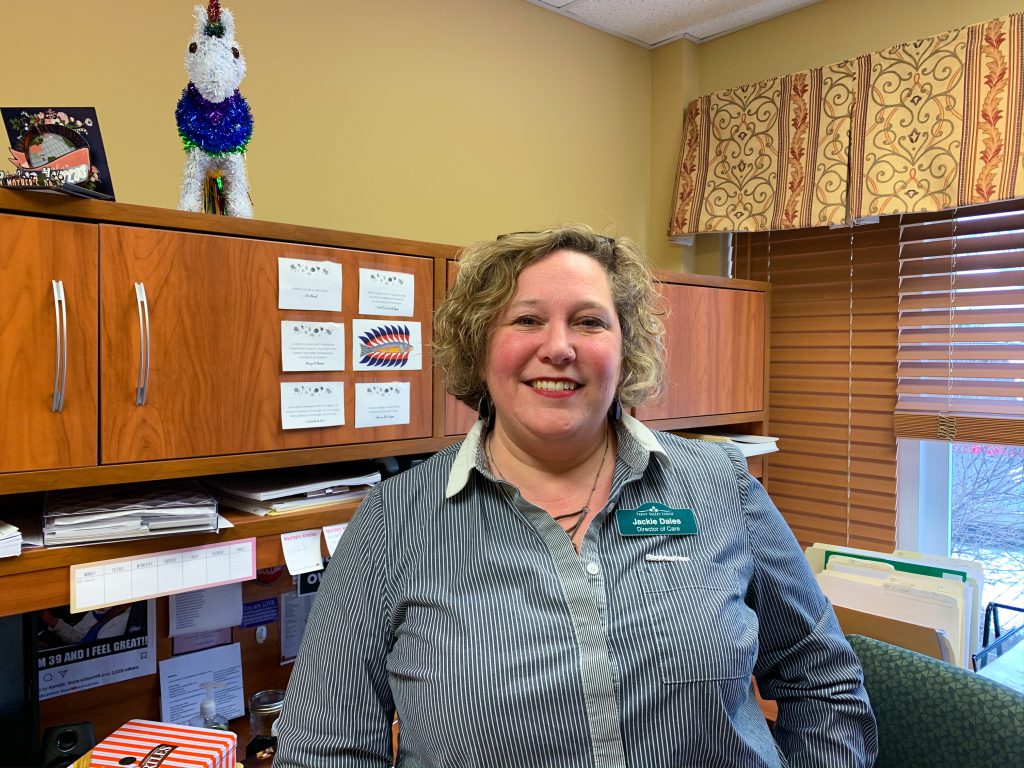A Quinte woman’s journey in supporting her transgender son

“As parents, the only thing we want for our kids is to see them be as successful as they can be,” said Jackie Dales, founder and facilitator of the Quinte area’s Rainbow Caregivers Network. Photo by Brittany Woodcock, QNet News
BELLEVILLE – Jackie Dales didn’t quite understand what her transgender son, Ian, was going through when he first came out – but she was eager to learn.
Before he came out he struggled with mental-health issues, she said.
“By the time he identified that he is transgender I was actually relieved to have a better understanding of what he was going through. Even though I really didn’t know what he was going through,” she said. “I felt pretty helpless and worried because I didn’t know anyone who had gone through transition. I didn’t have any meaningful connection to the LGBT+ community at the time.”
She was struggling to find reliable resources and connections in the community, so she took her search to the internet.
“I was able to connect with some terrific resources, including the TRANS Pulse Project, Rainbow Health Ontario, TSER and the 519. There are a number of YouTube videos which transgender people have created to talk about their lived experience, which helped me to be more empathetic and to understand the language that the community uses when talking about their own identities.”
Many of the stories were about family rejection.
“During the learning process, I came across so many stories of trans people being rejected by their families and friends when they began living their true lives,” Dales said. “I never wanted that to happen to my child, so I learned quickly.”
She then turned to the local LGBT+ community to make personal connections.
“Once I felt I knew a bit of information, I quickly realized that we needed personal connection with the local community. And I started searching for local resources. That led us to SAY OutLoud, which led us to Rainbow Youth Outreach and Bay of Quinte Pride.”
Dales found a peer support group for her son, then decided to start a group called Rainbow Caregivers Network to help other parents and caregivers of LGBT+ youth.
She offers counselling and support services through peer-support meetings in Belleville and Trenton, as well as phone and email consultations.
Each session gives parents resources to help support their child and bring any concerns they have to the table.
“I try really hard to make sure all of the parent’s concerns can be expressed in a way where they can be heard and reframed in a positive way, so we can support youth in a way that’s meaningful, accurate and truly helpful,” Dales said.
Another important message she shares is the suicide rate for transgender people and what having supportive parents does to reduce it.
According to the Canadian Mental Health Association, 77 per cent of transgender people have considered suicide and 45 per cent have attempted it.
But having supportive parents and caregivers is a key factor to help with their positive mental health and wellbeing, according to the association.
“When parents and adults can affirm a child who is LGBT+ identified, especially transgender identified, we are saving lives every single day,” Dales said. “There is nothing more rewarding than that.”
 Print This Post
Print This Post






